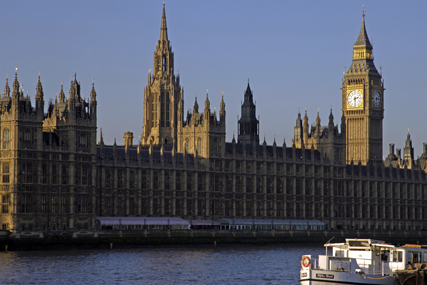New politics, or just more of the same? The political TV debates in the run-up to the election were meant to usher in a more transparent ways of doing things.
However, the power-brokering that followed the indecisive result did not reassure the nation; when it emerged the Lib Dems were talking to Labour as well as the Tories, the Daily Mail called it a 'squalid day for democracy'.
Various political parties' campaigns featured an odd mix of forward-looking 'new politics'-style marketing and old-fashioned muck-raking. The Labour Party used a series of posters attacking David Cameron and invited activists to satirise those run by the Tories. After a crowdsourcing contest, the party devised a poster depicting David Cameron as Ashes to Ashes character Gene Hunt, with the headline 'Don't let him take Britain back to the 1980s'. The stunt backfired as the Tories adopted the poster as their own.
The Tories did their share of negative campaigning; their ad agency M&C Saatchi produced a series of posters that used a smug-looking picture of Gordon Brown to attack his legacy.
After all the horse-trading, the UK's first coalition government since World War II has been set up, but will a change in administration be enough to restore faith in politics? Can electoral reform re-engage voters disgusted by the MPs' expenses scandal? If parliament were a brand, what should it do next?
We asked Hugh Burkitt, chief executive of The Marketing Society, and Stephen Woodford, chairman and chief executive of DDB UK, for their views.
HUGH BURKITT, chief executive, The Marketing Society
The UK government does not exist as one coherent brand in people's minds. In between elections we come into contact with the government only when it directly affects our lives, such as when the police are pursuing us for misbehaving.
It is only when we are asked to choose a government that we make a distinction between the brands that exist within it; Labour, Liberal, Conservative or 'other'. For the past 13 years the brand has been New Labour - markedly so under Tony Blair, as he was adept at campaigning and governing at the same time.
The question now is whether the established brands will become muddled by a coalition. Will the Tories strengthen their profile by becoming more accessible, or will the Lib Dems alienate their faithful supporters? Some see Labour as a more comfortable fit in opposition, so perhaps its brand will now see something of a renaissance.
This election has generated the highest level of public engagement in a long time. I hope now that the government can avoid sinking back into a two-party-dominated torpor, and instead move toward an era of greater brand choice.
Remedy
- More people vote when they think their vote counts. We must change the system so that fewer votes are wasted.
- Be green. Environmental issues created hardly any debate in this election, but at least 10% of consumers are 'green crusaders'.
- Involve voters between elections. Our opportunity to put a pencil cross on a piece of paper once every four or five years seems ridiculously Victorian.
- Labour and the Tories are big coalitions that would be better off without their old-school hard-liners, so let them both form their own parties.
STEPHEN WOODFORD, chairman and chief executive, DDB UK
The election result provides the opportunity to rebuild and renew parliament's brand and make it stronger.
Our votes have willed a collaborative solution through not giving a majority, and our unwritten constitution has somehow delivered what we, as consumers, wanted.
The brand will be strengthened immeasurably if the coalition can really break the mould and govern in a new, open and determined way, for the entire nation.
Cameron and Clegg have been left holding just about the worst hand of cards imaginable. But if, like the Irish government, they tackle the problems quickly and honestly, they will be able to restore trust and belief in the best principles of our parliament.
One behavioural change is vital - an end to the spin, factionalism and mutual loathing that corroded public trust in the last government. The coalition must be seen to work as a team and resist the temptation to brief against each other.
Genuine reform of some of the idiosyncrasies of the voting system will also help. Most of all, the new expenses regime, which is rigorous and transparent, must be seen to work.
Remedy
- Earn trust by tackling the big economic issues quickly and decisively.
- Ensure all decisions are jointly owned, avoiding public horse-trading.
- Use the fresh intake and coalition to change the adversarial dynamic of the old brand, replacing it with a new, collaborative spirit.
- Eliminate the spin culture and stamp on factionalism.
- Use the voting and expenses reforms to restore the belief that parliament exists to serve the people, not to further the interests of MPs.


